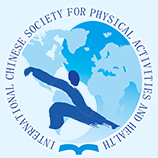Document Type
Abstract
Publication Date
12-1-2024
Abstract
Background: The early years are a critical period for the development of health-related physical fitness (PF). National surveillance data showed that PF decreased among Chinese preschool children aged 3-6 years. There is a widespread call for effective physical activity (PA) intervention strategies for this age group. Nevertheless, the depth and breadth of the evidence on such interventions in Chinese preschoolers remains relatively small. Therefore, the present systematic review aimed to investigate the effects of PA interventions on PF in typically developing Chinese young children.
Methods: In accordance with the Preferred Reporting Items for Systematic Reviews and Meta-Analyses (PRISMA) statement, a literature search was carried out for full-text articles published in journals on China National Knowledge Infrastructure (CNKI), Wanfang Database, Web of Science, PubMed, and EBSCO from inception to February 2024. Search terms were used in combinations: (preschool* OR kindergarten OR child*) AND (OR activ* OR exercis* OR game*) AND (intervention OR program OR trial) AND (physical fitness OR health-related fitness OR physical performance) AND (China OR Chinese). The inclusion criteria were: (1) sample which was comprised of healthy, normal developing Chinese children (3-6 years) without motor or mental impairments; (2) intervention studies with implementation of any forms of PA; (3) outcome measures for changes in PF.
Results: A total of 35 studies were included. Among eligible literature, 25.7% of studies (n=9) were reported as randomized controlled trials, 17.1% of studies (n=6) were cluster-randomized controlled trials and the remaining 57.2% (n=20) were non-randomized controlled trials. Sample sizes ranged from 50 to 2132 (51.2% boys). Intervention duration varied from two weeks to sixty weeks. The sessions were held once to seven times a week, and the duration of one intervention session varied from 15 to 120 minutes. There was a large variation in the content of PA interventions from structural physical exercise curriculum, traditional Chinese games, and specific sport games (e.g., basketball, football, wushu) to multiple programs including interventions on levels of schools, teachers, and parents. Most of the included studies demonstrated the beneficial effects of PA interventions on preschoolers’ flexibility, agility, balance, and coordination ability, while significant effects were rarely observed in anthropometric indicators.
Conclusion: PA interventions were consistently found to be favorable to a broad range of physical fitness indicators in Chinese preschool children. We recommend researchers conduct more studies with high-quality designs to testify the effectiveness of PA strategies in improving PF among young children.
DOI
https://doi.org/10.18122/ijpah.3.3.175.boisestate
Recommended Citation
Hong, Jintao; Wang, Jingjing; Chen, Sitong; and Feng, Jie
(2024)
"A175: Effects of Physical Activity Interventions on Physical Fitness in Chinese Preschool Children: A Systematic Review,"
International Journal of Physical Activity and Health: Vol. 3:
Iss.
3, Article 175.
DOI: https://doi.org/10.18122/ijpah.3.3.175.boisestate
Available at:
https://scholarworks.boisestate.edu/ijpah/vol3/iss3/175
Included in
Exercise Science Commons, Health and Physical Education Commons, Public Health Commons, Sports Studies Commons



